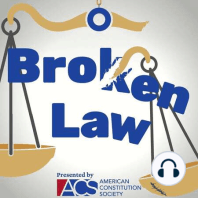57 min listen
Episode 143: Misogyny and the Law
FromBroken Law
ratings:
Length:
37 minutes
Released:
Mar 5, 2024
Format:
Podcast episode
Description
International Women's Day will be celebrated on March 8th. It is a day to celebrate while also taking stock of women's rights here in the United States and abroad. This year, we see a number of countries making significant strides toward reproductive freedom for women while the United States slides backwards. Lindsay Langholz speaks with Julie Suk, author of "After Misogyny: How the Law Fails Women and What to Do About It," about how misogyny informs our legal system and our social structures.Join the Progressive Legal Movement Today: ACSLaw.orgToday's Host: Lindsay LangholzGuest: Julie Suk, Hon. Deborah A. Batts Distinguished Research Scholar and Professor of Law, Fordham University School of LawLink: After Misogyny: How the Law Fails Women and What to Do About It by Julie Suk Link: "French Senate votes to enshrine abortion in constitution, a world first" by Karla Adam Link: "Ireland kickstarts vote on constitution's wording about women and family" by Rory CarrollVisit the Podcast Website: Broken Law PodcastEmail the Show: Podcast@ACSLaw.orgFollow ACS on Social Media: Facebook | Instagram | Twitter | LinkedIn | YouTube-----------------Broken Law: About the law, who it serves, and who it doesn’t.----------------- Production House: Flint Stone Media Copyright of American Constitution Society 2024.
Released:
Mar 5, 2024
Format:
Podcast episode
Titles in the series (100)
Episode 52: A Guide to Reforming the Supreme Court: About the law, who it serves, and who it doesn’t. by Broken Law
